Numbness after a dental filling usually lasts 1 to 3 hours, depending on the anesthetic used, your body’s metabolism, and the type of procedure. Fillings cause shorter numbness, while extractions and root canals may leave the area numb for up to 5 hours or more. Dentists typically use lidocaine, which wears off gradually. If numbness lasts beyond 6 hours, especially with tingling or discomfort, it could signal an issue with the nerve. You can ease numbness by moving your mouth gently, applying a warm compress, or just resting. Avoid biting your cheeks, drinking hot fluids, or eating until sensation returns. This article explains why numbness happens, how long it lasts by procedure, and how to manage it safely.
What Is Dental Numbness and Why Does It Happen?
Dental numbness is a temporary loss of feeling in your mouth, gums, lips, or tongue. It happens when your dentist injects a local anesthetic—usually lidocaine or articaine—to block the nerves that send pain signals. This numbness helps you stay comfortable during procedures like fillings, extractions, or root canals.The numbness starts within minutes and can last from 1 to 5 hours, depending on the type of anesthetic, how much was used, and your body’s ability to process it. Some people feel numb longer due to slower metabolism or if the injection was close to a major nerve. Though the sensation can feel strange, it’s completely normal and designed to keep dental care pain-free and stress-free, Dentist use hygiene instruments for the procedure.
What Do Dentists Use to Numb Your Mouth?
Dentists use local anesthetics to numb your mouth before procedures like fillings, extractions, or root canals. The most common agents are lidocaine and articaine, both of which block the nerves that carry pain signals. These medications are injected near the treatment area and work within minutes.
Sometimes, anesthetics are combined with epinephrine, a medicine that narrows blood vessels. This helps the numbness last longer and keeps bleeding under control. Other agents like mepivacaine or bupivacaine may be used depending on your age, health, or the complexity of the dental work.Each numbing agent is carefully chosen based on how long the dentist needs you to be numb and how your body reacts to certain medications. The goal is always the same: a comfortable and pain-free experience during dental care.
Dosage:
The dosage of local anesthetic plays a big role in how long your mouth stays numb. A higher dose or multiple injections can extend the numbness, while lower amounts wear off quicker. Too much can increase the risk of side effects like dizziness or prolonged numbness.
Average Duration of Numbness After Dental Procedures
Numbness After Routine Fillings
For simple cavity fillings, numbness usually lasts between 1 to 3 hours. This is due to short-acting local anesthetics like lidocaine. Once the numbing fades, slight tingling or a heavy feeling in the lips and cheek may remain for a short time.
Numbness After Tooth Extractions
Tooth extractions typically involve deeper injections and slightly longer-lasting agents. You can expect numbness to last 3 to 5 hours in most cases. For wisdom tooth removals, especially impacted ones, numbness can sometimes linger into the evening.
Numbness After Root Canal Treatments
Root canals require precise numbing, especially in molars. The numbness can extend 4 to 6 hours, particularly if a stronger agent like articaine is used. Some patients may feel temporary nerve sensitivity in the treated area even after the numbness wears off.
Key Factors That Affect Numbness Duration
Several factors influence how long dental numbness lasts:
- Type of anesthetic: Lidocaine wears off faster than articaine or bupivacaine.
- Injection location: Numbness in lower jaws (mandibular block) usually lasts longer than upper jaws.
- Dosage & concentration: Higher amounts or stronger blends extend numbing.
- Patient sensitivity: Age, metabolism, and health conditions (like liver function or anxiety) can all impact how quickly anesthesia wears off.
Common Reactions to Numbing Medications
Most patients experience typical effects like:
- Tingling or heaviness in lips, cheeks, or tongue
- Minor drooling or difficulty speaking clearly
- Slight swelling or tenderness around the injection site
These usually fade within a few hours and don’t require treatment.
Potential Side Effects and Complications
Although rare, some side effects may include:
- Prolonged numbness (paresthesia): May last for days if nerves were bruised
- Muscle twitching or rapid heartbeat: Often caused by epinephrine in the anesthetic
- Temporary dizziness or light-headedness
These are not dangerous but should be monitored. If they persist, consult your dentist.
Allergic Reactions and Sensitivities
Allergic reactions to dental anesthetics are very uncommon, especially with modern formulations. But watch for signs like:
- Skin rashes or itching
- Breathing difficulty
- Swelling of lips, face, or throat
Dentists always review your medical history and can switch to preservative-free options if needed. If you’ve had a past reaction, alert your dental provider before any future procedure.
Managing Discomfort and Numbness Post-Dental Work
Once your procedure is done, numbness may linger for 1 to 4 hours. To manage it safely:
- Avoid touching or poking the numb area with your tongue or fingers.
- Apply a cold compress on the outside of your cheek if there’s mild swelling.
- Over-the-counter pain relief (like ibuprofen) can help if there’s post-op soreness.
Tips for Eating and Drinking
- Wait until full sensation returns before eating solid foods.
- Stick to soft, cool meals like yogurt, mashed potatoes, or smoothies.
- Avoid hot drinks—they can burn your mouth without you realizing it.
- Sip through a straw only if your dentist says it’s okay (not recommended after some procedures).
Chew on the opposite side to avoid accidental injury.
Caring for the Numb Area
- Don’t bite or chew your lips, tongue, or cheeks—use a mirror if needed to monitor.
- Gently rinse with lukewarm saltwater 24 hours after treatment to keep the area clean.
- Avoid vigorous brushing or flossing near the treated site until numbness fades.
These small precautions can prevent complications like swelling or soft-tissue injuries.
What to Avoid While Still Numb
- Smoking or vaping – slows healing and increases risk of dry socket.
- Chewing gum – can cause accidental biting.
- Driving – if sedated, wait until you’re fully alert.
- Touching the numb area – may delay recovery or cause irritation.
Be patient and careful—numbness is temporary, but damage from neglect can last much longer.
How to Make Numbness Go Away Faster After a Cavity Filling
Dental numbness usually fades on its own—but if you’re eager to speed things up, here are proven ways to reduce that tingling sensation safely:
- Gently massage your cheek on the numb side. This helps stimulate blood flow and encourages the anesthetic to wear off faster.
- Move your body. A light walk or mild physical activity boosts circulation, helping your body flush out the numbing agent.
- Stay warm. Sip on room-temperature water or place a warm compress (not hot) on the cheek. Heat opens blood vessels and speeds absorption.
- Avoid touching the numb area. Don’t bite your lips or cheeks while waiting—it delays healing and can cause injuries.
If numbness lasts more than 5 hours, it may be time to consult your dentist, especially if paired with tingling or discomfort.
Prolonged Numbness: When to Be Concerned
Feeling numb for 1–3 hours after a filling is normal. But if numbness lasts more than 5 hours, it could be a sign of something unusual. Prolonged numbness may point to temporary nerve compression, delayed metabolism of anesthesia, or rarely, minor nerve trauma.
Signs of Abnormal Nerve Response
If you experience sharp tingling, burning, or a “pins and needles” feeling long after your procedure, it may indicate a nerve irritation—particularly in the inferior alveolar or lingual nerves. Other warning signs include numbness in the tongue, lips, or chin that doesn’t improve over time.
When to Contact Your Dentist
Contact your dentist if:
- Numbness lasts more than 5–6 hours
- You feel electric-shock sensations
- You experience pain with numbness
- There’s no improvement within 24 hours
Early communication can prevent complications and ensure your nerve health is protected. Dentists can assess the cause and may recommend monitoring, medications, or referral to a specialist.
Tips to Prevent Prolonged Numbness in Future Visits
- Discuss Medical History: Let your dentist know about any past reactions to anesthesia or medications. This helps them adjust dosage or choose a different anesthetic.
- Request Minimal Effective Dose: Dentists can use just enough anesthesia for comfort, reducing the risk of lingering numbness.
- Avoid Over-Treatment Areas: If you’re having work done on multiple teeth, ask if it can be spaced out. Numbing larger areas increases risk.
- Move Jaw Gently Post-Treatment: Light movement after the procedure can help improve blood flow and reduce residual numbness.
- Stay Hydrated & Nourished: Good circulation helps your body process anesthetics faster — drink water and eat lightly before your appointment if allowed.
By planning ahead with your provider and understanding your options, you can lower your chances of prolonged numbness and recover more comfortably.
If you’re in Phoenix, Arizona and looking for gentle, expert dental care, local clinics offer advanced numbing techniques using safe, fast-acting anesthetics like lidocaine and articaine. Whether it’s a routine filling or a complex restoration, providers here prioritize patient comfort, using modern equipment and techniques that minimize downtime and post-procedure numbness.Several Phoenix-based practices also offer same-day consultations, transparent pricing, and follow-up support — perfect for anyone seeking reliable dental filling services near them. Always choose a licensed provider who explains your numbing options, expected duration, and aftercare, so you leave feeling confident and cared for.
Frequently Asked Questions (FAQs)
1. What are the common types of local anesthetics used in dentistry?
Dentists commonly use lidocaine, articaine, mepivacaine, and bupivacaine. Each differs in onset time, potency, and duration. Articaine, for instance, acts fast and penetrates bone better, making it ideal for certain procedures.
2. How do dental numbing agents work?
Local anesthetics block the nerve signals in a specific area of your mouth. They prevent pain by stopping the nerves from sending signals to your brain during dental treatments like fillings or extractions.
3. How long does numbness typically last after a routine filling?
On average, numbness from a dental filling lasts 1–3 hours, depending on the anesthetic used and your metabolism. Full sensation usually returns gradually, with lip and tongue feeling the effects the longest.
4. What should I do if I’m still feeling numb several hours after a tooth extraction?
If numbness lasts more than 4–6 hours, it’s often still normal. But if it continues into the next day or worsens, contact your dentist to rule out nerve irritation or a rare complication like paresthesia.
5. Are there any tips for eating and drinking while my mouth is still numb?
Yes. Stick to soft, lukewarm foods and avoid chewing on the numb side to prevent biting your cheek or tongue. Drinking through a straw should be avoided after extractions to reduce the risk of dry socket.
6. Can dental anesthesia cause allergic reactions?
Allergic reactions are rare but possible. Symptoms may include itching, rash, or swelling. If you’ve reacted to anesthesia in the past, inform your dentist beforehand so they can use an alternative agent.
7. How can I make dental numbness wear off faster?
You can try gentle jaw movement, warm compresses, and staying active to help increase blood flow. In some cases, dentists may use reversal agents like OraVerse to reduce numbness duration.
8. What signs of dental numbness should I be worried about?
Be cautious if numbness lasts over 12 hours, if you feel a burning sensation, or if there’s partial numbness with tingling. These could indicate nerve trauma and should be evaluated professionally.
Understanding how long numbness lasts after dental procedures helps clinics better prepare patients and offer smoother recovery experiences. While dentists are responsible for applying the right anesthesia and aftercare, having the right tools on hand makes all the difference — from precision application to efficient patient turnover.
That’s where we come in.
At TheSurgiWorld, we don’t just sell instruments — we equip professionals with CE-certified, ergonomic, autoclavable tools designed for reliability, comfort, and performance. Whether it’s atraumatic forceps, sharp scalers, or hygiene kits built for modern practices, we support your clinical excellence.Explore our trusted range of dental instruments now — and upgrade your setup with tools that work as hard as you do.

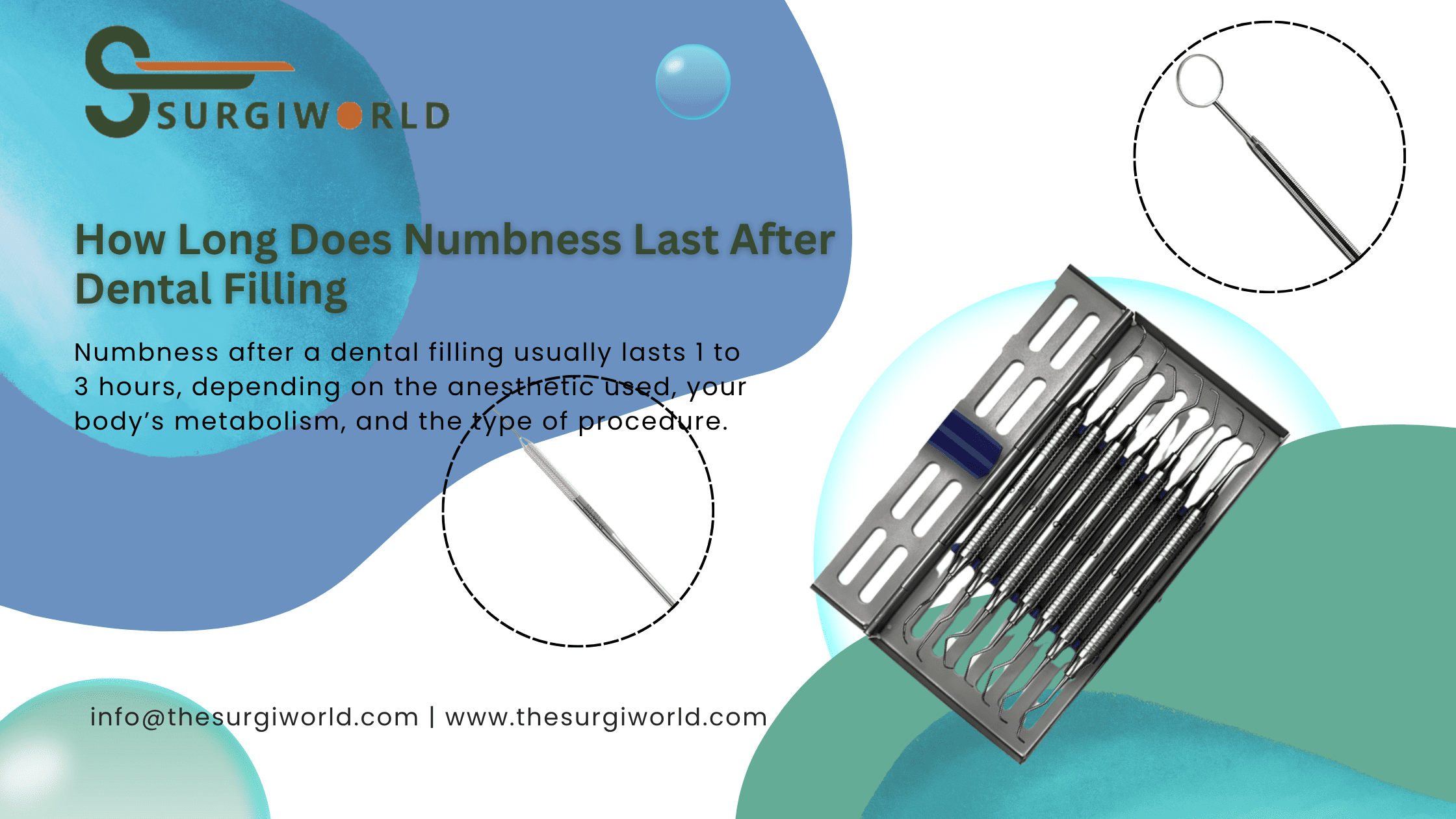
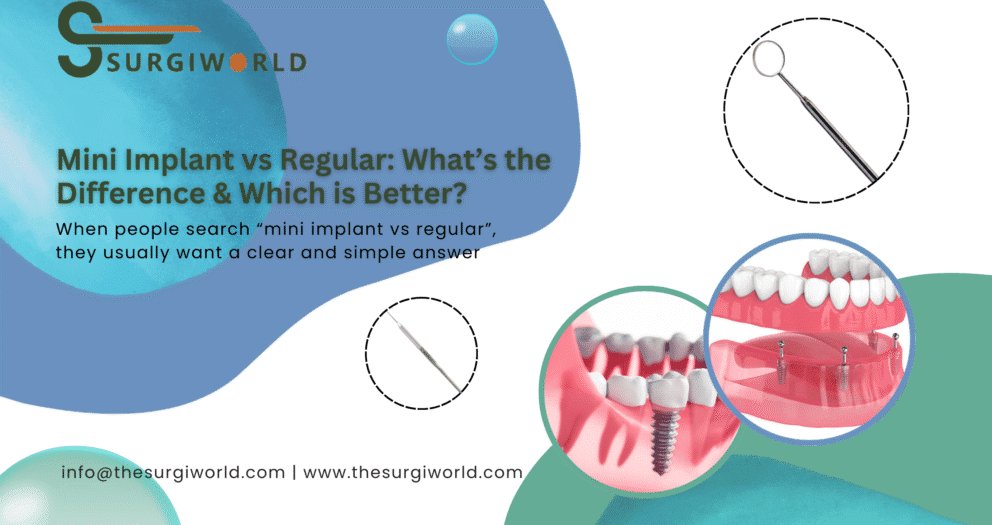
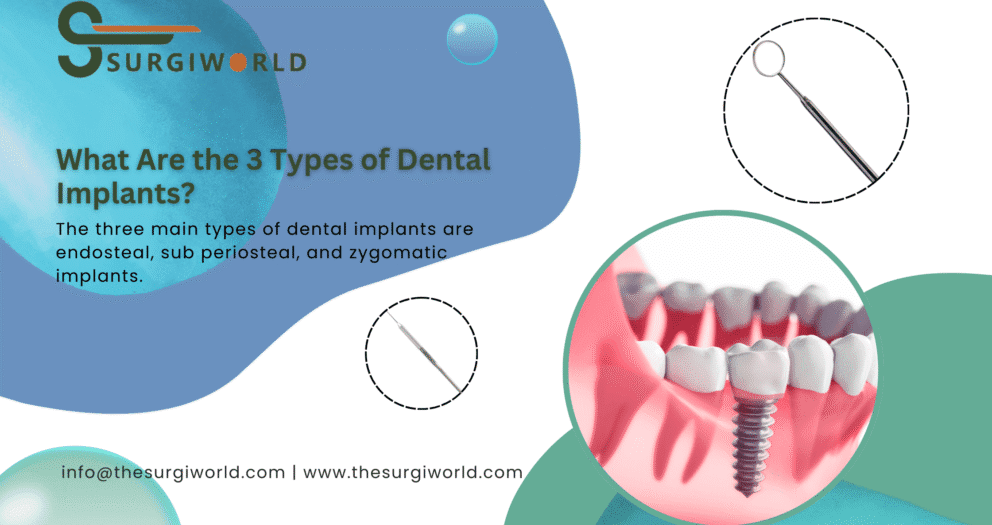
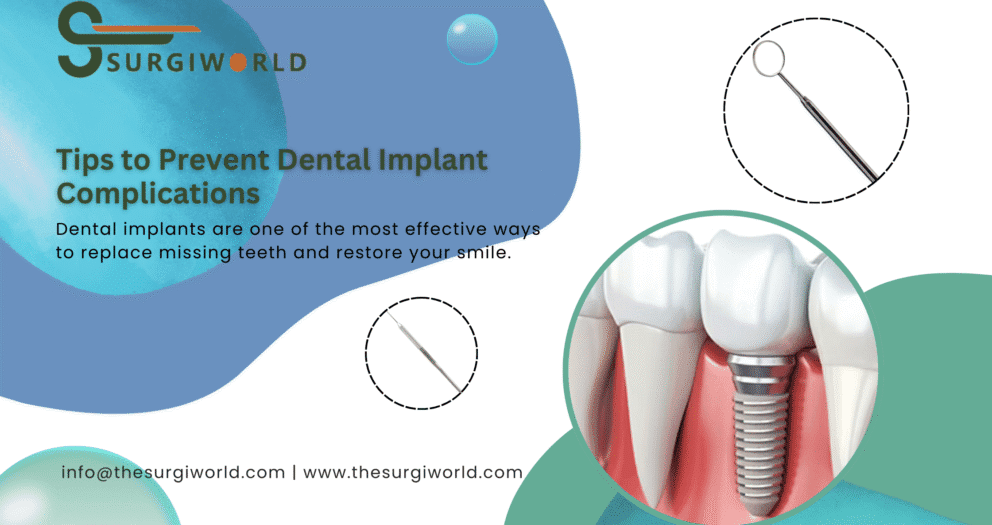
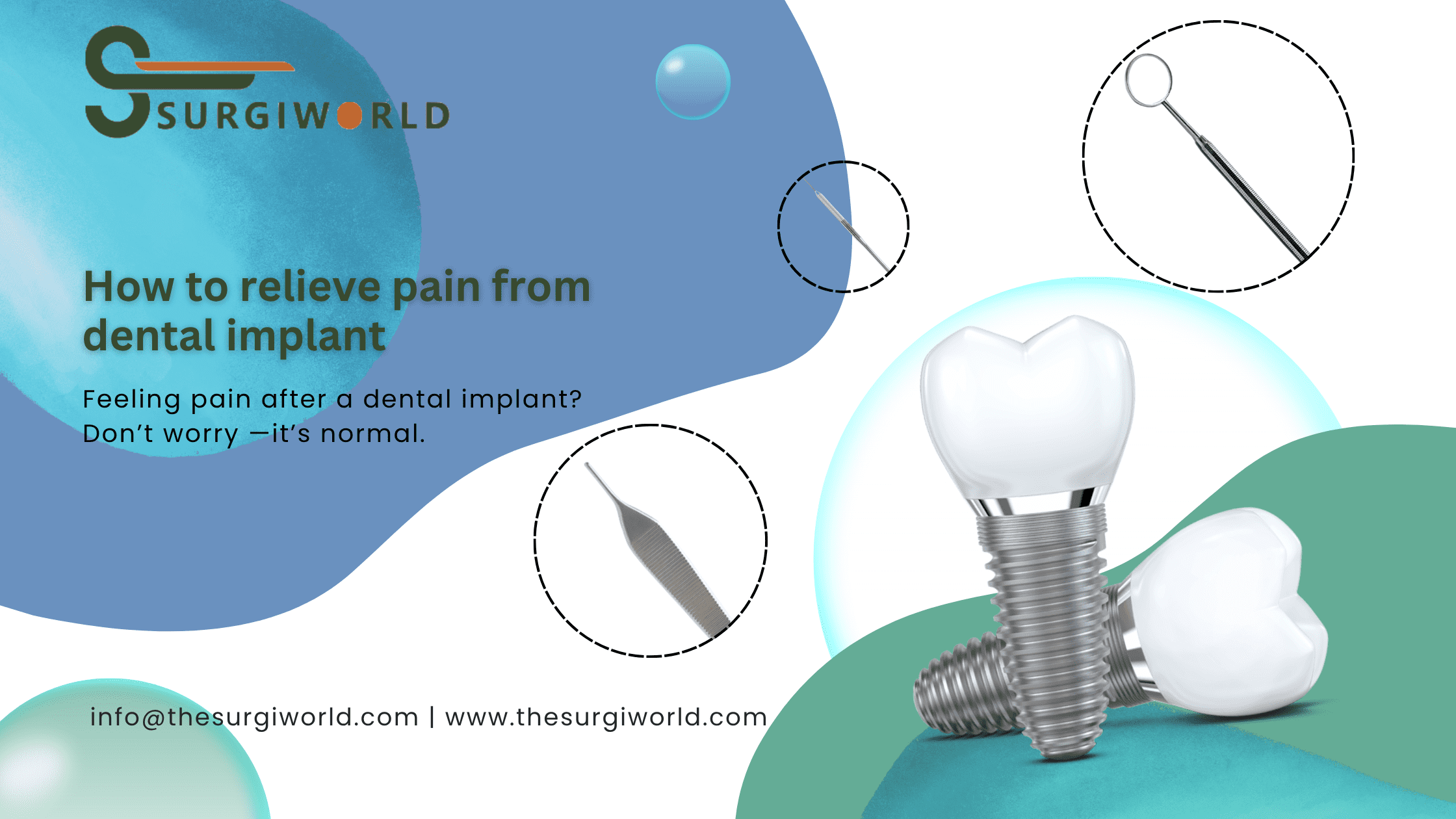
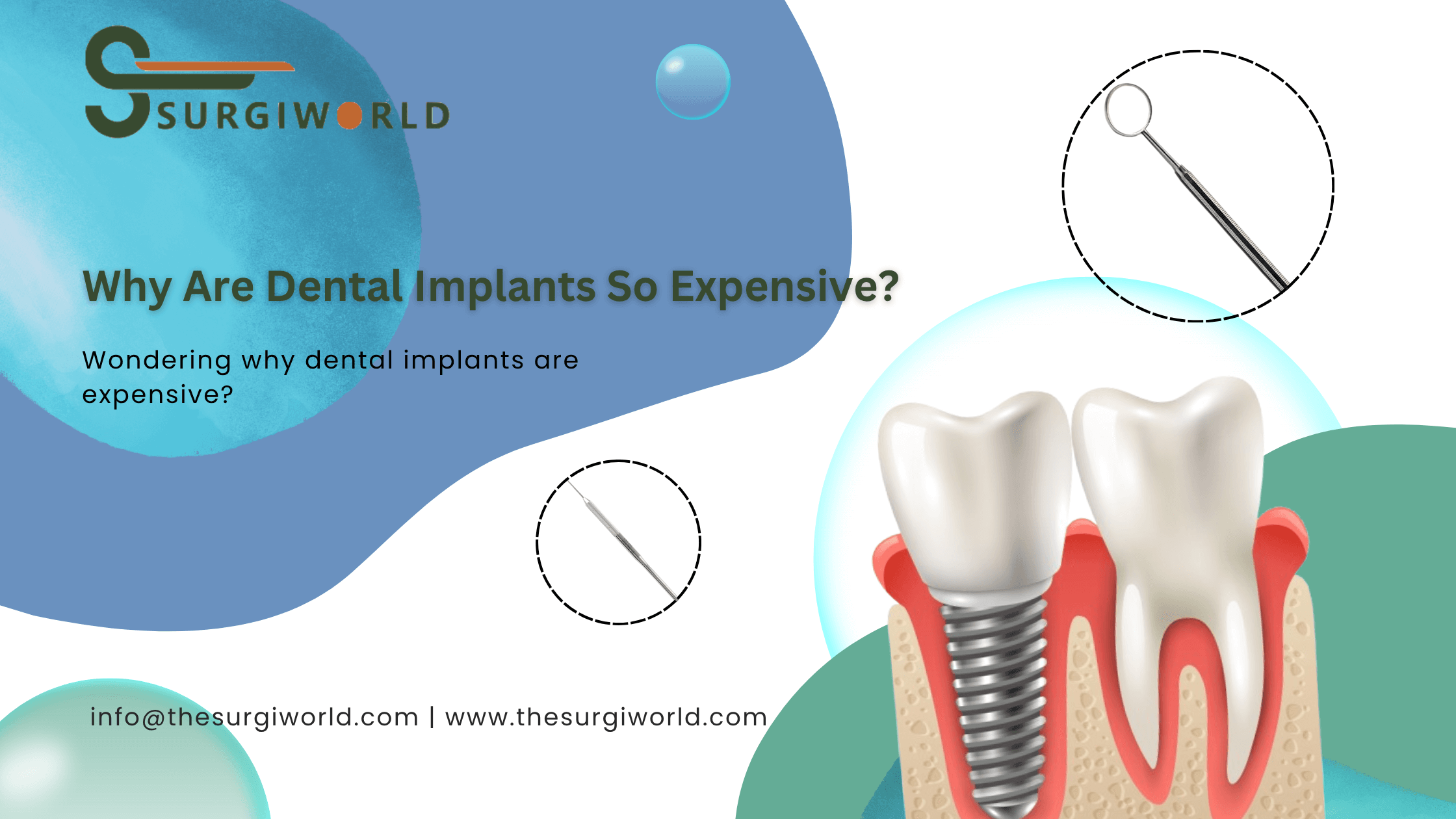
Write a comment
You must be logged in to post a comment.